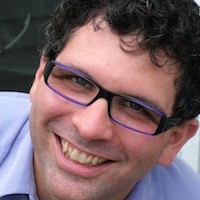Many of my most profound spiritual awakenings have come to me through the practice of meditation.
I see this topic as a spiritual discipline that is central to philosophy in that at its core the practice of meditation involves making direct contact with reality.
Meditation is a time-honored spiritual discipline practiced in both the Judeo-Christian traditions of the West and the Buddhist and Hindu traditions of the East.
As I have learned it, the ultimate aim of the practice is to make direct contact with reality as it is. The ultimate prize to be won is an unadorned experience of the real. A direct encounter with reality in this way is shocking and unmistakable.
One of the things that philosophers and mystics have generally agreed is that human beings do not generally experience reality directly as it is. Plato, in his famous allegory of the cave, described our normal perception of reality in terms of shadows on a cave wall. Seldom if ever do any of us turn from the shadow play on the cave wall to face the figures that are actually casting the shadows, and it is even more rare for us to look beyond the figures directly into the source of light behind them.
More recently Immanuel Kant described how we never experience reality as it is. Rather we experience phenomenon that are created from the encounter of the perceptual mechanisms of our mind and reality. We only experience this combination and therefore never experience reality directly.
My own experience of meditation has shown me that we as human beings all prefer to experience pleasure over pain and in gross and subtle, conscious and unconscious, ways we are constantly manipulating our experience into more pleasurable arrangements. We do this by directing our attention toward thoughts and feelings that we find pleasing and away from those that are uncomfortable.
The way that I have learned to practice meditation can essentially be described as the practice of resisting the temptation to manipulate your experience in anyway. You simply allow yourself to experience reality however it presents itself without doing anything at all.
In this practice you quickly find that what sounds like it should be simple is actually a supreme challenge. As you sit with the intention not to do anything at all and only to experience reality as it is, you quickly experience how strong a habit you have of constantly manipulating your experience. In meditation you endeavor to give up control, to surrender to the way things are, and you find yourself desperately holding onto control—consciously and unconsciously making an unending stream of adjustments to your experience.
If you begin to be successful in the practice of giving up control you will begin to discover a profound truth. You will see that seemingly every aspect of reality as you experience it is a fictitious manipulation. Your sense of things, your sense of self, your sense of others—it is all a construction rather than a given.
You might even begin to experience what William James described as the stream of consciousness. In this unending stream of awareness everything manifests as a succession of experiences each flowing into the next. In that stream you cannot find anything that you can identify with as you, although “you” seem to be there. As you continue to let go your mind begins to relax into a profound state of not-knowing. You realize that your normal experience of reality is not the way things are and as you become less and less afraid of discovering the truth about the way things are you relax more and more deeply into reality.
It is the most profound experience of coming home, because of course this is where you always have been. It is the most intense experience of revelation because you are seeing right in front of your eyes the reality of the way things always have been. You discover the mechanisms that you have learned to adopt in order to construct reality and hide from the truth.
Living in a reality of our own construction is in many ways essential and allows us to get along in an unpredictable world. In other ways, however, it keeps us locked into ways of being that may have long outlived any value. The most detrimental of these is an assumed fearful relationship to life. After all, if we are constantly manipulating our experience, we must somewhere be convinced that reality as it is cannot be trusted. As you let go of the habit of manipulation you simultaneously let go of the habit of mistrust.
What you discover is that underneath it all, in the deepest place in your being, you already trust life. This discovery is the profound gift that meditation offers.
Relephant:
The Simple Technique that Changed My Life.
Author: Jeff Carreira
Editor: Travis May
Photo: Flickr/Kah Wai SIn
Facebook is in talks with major corporate media about pulling their content into FB, leaving other sites to wither or pay up if we want to connect with you, our readers. Want to stay connected before the curtain drops? Get our curated, quality newsletters below!

 Share on bsky
Share on bsky





Read 0 comments and reply